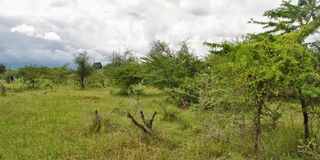PROPERTY GUIDE: Acquiring land, property as foreign investor in TZ

What you need to know:
The Land Act, 199
Under the Land Act, 1999 it has been stated that, non-citizens will not be granted land unless it is intended for investment or development use as stated under the Tanzania Investment Act, 1997.
The laws governing land in Tanzania do not permit land ownership by foreign nationals, but this should not discourage you as a foreigner for we shall look into various methods and rights you have to occupy land in Tanzania.
The Land Act, 199
Under the Land Act, 1999 it has been stated that, non-citizens will not be granted land unless it is intended for investment or development use as stated under the Tanzania Investment Act, 1997.
The law further stipulates that if a corporation having foreigners as the majority shareholders of the company it will be considered as a foreign corporation, hence it cannot be granted the right of occupancy unless such a corporate body is registered and granted a certificate of incentives under the Tanzania Investment Act, 1997.
Options of foreigners
Foreigners have a wide range of options, when choosing land, depending on their requirements, and are not limited to only acquiring land listed under the Tanzania Investment Centre (TIC).
However, when choosing land so listed, should the foreigner/investor fail to meet the conditions of investment agreed upon on granting of the derivative right, TIC can re-acquire land and the foreigner is entitled to compensation on the developments made on such land.
General concept of land ownership in Tanzania
Land in Tanzania is vested in the office of the President on behalf of all citizens. Land in Tanzania is divided into three categories, which are general land, village land and reserved land. The Land Act, 1999 provides for general land and reserved land. Under this Act, a person, who wants to occupy land can apply and be issued the granted right of occupancy, subject to fulfilling required conditions. The terms of a right of occupancy are between 33 years and 99 years.
A foreigner can acquire land in Tanzania through the following:
Derivative rights
Land for investment purposes is granted to the TIC, which in turn grants derivative rights to investors for a specified amount of time, which shall not exceed 99 years.
The investors will follow up with the TIC presenting a proposal for the size of the land required, the purpose for using it among other prerequisites required before obtaining derivative rights – which will be advised and assisted accordingly by specialised personnel, who is familiar with legal procedures. There have been many instances of foreigners applying for land and not utilising it as intended.
Although this seems to be one of the best ways for investors to enjoy the use of land in Tanzania, it comes with certain challenges to the investors. For example, most of the banks in Tanzania are not comfortable with taking derivative right titles as a security mainly because their enforcement is associated with some challenges, the main one being the TIC right to re-acquire the property.
Land registered under the TIC
However, there is also the fact that such land is already registered under the TIC as land designated for investment purposes and, therefore, when a bank decides to sell it in order to recover they have limited buyers.
Another challenge associated with derivative rights is the timing of issuance of the title, especially, when an investor purchases a property from a Tanzania individual or registers an entity.
Relevant approvals at the municipal council, the ministry of Lands, Housing and Human Settlements Development and the TIC to the point of issuance of the title takes approximately a year or more, which is after the investor has made all necessary payments associated with land acquisition. Whilst for land already registered under the TIC, it can take just two to three months.
Lease
Most foreign companies opt to enter into lease agreements with land owners, who have been granted a right of occupancy.
Persons granted a right of occupancy may enter into lease agreements either with citizens or non-citizens provided that the maximum term for which any lease may be executed shall be 10 days less than the period for which the right of occupancy has been granted. This is the quickest way for such a company to enjoy land rights in Tanzania. It is worth noting that the granted right of occupancies have a term of up to 99 years with an option of renewal.
Joint venture
Foreigners can enter into joint venture agreements and incorporate companies in which citizens are major shareholders with 51 per cent and are able to acquire a granted right of occupancy, which enables them to use the acquired land for the purposes of the company business.
Use of village land by foreigners
Persons, who wish to occupy and use village land for various purposes can apply for the right to use land to the village council, which may grant a non-citizen the right to use and occupy land for a limited period of time and under stipulated conditions as indicated by the village council and the Village Land Act, 1999.
It would be wise to seek assistance from a person or company specialised in land acquisition procedures both on legal and administrative aspects, when looking into acquiring land in Tanzania.
It is also highly advisable to do due diligence before buying land in Tanzania.
Situations such as a fake title deed, a fake owner, no spousal consent and inherited land sold by some of the beneficiaries without proper estate administrators being appointed are some of the common problems.
The author is a practice manager with ABC Attorneys. For more information: www.abcattorneys.co.tz or email the author at [email protected]




